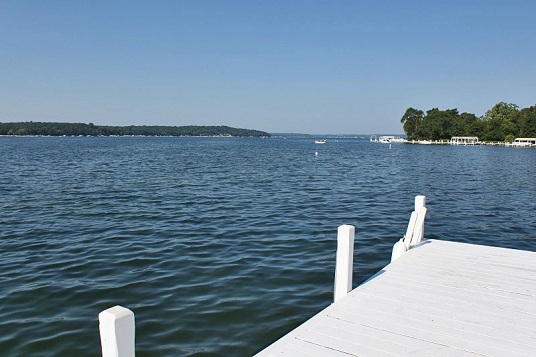
When real estate is bad and sales are few, comparing real estate activity to a prior quarter, or a prior year is fun. Case Schiller loves doing this. When sales are sliding or when they’re accelerating, YTD figures contrasted against prior YTD figures makes real estate appear dynamic. Huge fluctuations in both volume and price cause governments to get involved, to overreach in an attempt to either cool a hot market or warm a cold one. Inventory plays like this as well. Bloated inventory can cause prices to push downward, and then low prices can cause volume to inch upward. It’s all interconnected, much like the internet and its series of tubes and pipes.
So what happens when markets correct and there aren’t any volatile price fluctuations and volume isn’t soaring nor eroding? What happens when markets operate under some normal parameters where volume is present but stable and pricing is stable but thinking about edging up or down depending on which quarter you choose to measure the sales? What happens then? Well, what happens then is real estate stops being headline news and the absence of breathless, sensationalized real estate snippets means there’s more time for the media to focus on things that really matter. Like, can you believe Romney signed his 2010 tax return with blue ink?! HORRORS!
Markets mend, and markets lose their sex appeal, and we all move on with our lives. But something magical happens to those lives when real estate improves. We stop worrying so much. Buying becomes less about timing the market and more about buying the right house. Selling becomes less miserable, and instead of two years on the market sellers might instead hope for just 9 months. Real estate doesn’t become hot again, but without the overriding fear surrounding the market real estate can once again operate in a normal, uninterrupted cycle.
The lakefront market on Geneva is, as you know, mostly on fire. I say mostly because there are still deals, and while I fear that many buyers who are unaware of the nuances of the market will rush to buy this fall without proper advice (fine, my advice), plenty of deals still exist. It is true that these deals are becoming harder to find. Properties need to slip through the cracks for a while before deals present themselves, and with more buyers that means fewer cracks, and fewer cracks means fewer properties falling through to the hungry buyers that wait these sorts of things.
But this is the lakefront market, and the lake access market surrounding Geneva Lake is entirely and completely different. The markets serve the same basic demographic- city and suburban people looking to escape their surroundings and leave their boring zip codes to fend for themselves on the weekends- but the markets are much, much different. The lake access market on Geneva saw its worst year of this most recent cycle in 2009, when from January 1st through August 20th we saw just 16 lake access sales priced under $1MM. Take a look at how these YTD numbers for lake access sales have played out over recent years:
2006: 32 YTD
2008: 25 YTD
2009: 16 YTD (boo, hiss)
2010: 26 YTD
2011: 29 YTD
2012: 28 YTD with three currently pending
That, my anonymous friends, is what consistency looks like. The world melted in 2008, so the 2009 figure can be excused as a fitting reaction to our 2008 fall, but the other numbers are all eerily similar. After 2009 the market didn’t sulk any longer, it just rebounded. Prices still softened, and to some extent they are still softening as most pricing backs up to 2003 pricing, but prices today are stable compared to where they were a year, two, or three ago. To play Case Schiller and compare these statistics from 2010 through today would be a ridiculous exercise in fractions, as the market, in volume terms, was the same then as it is today, which is the same as it was in 2006, give or take.
The lake access market is no longer a market in some state of flux. There are plenty of buyers to keep it liquid, and plenty of sellers to feed the demand. I suspect one of two things will happen this fall, and in guessing two things I’ll be certain to be right. Either the market will heat up for a brief stint, as it usually does during September and October, or it’ll just plow right along, registering sales and exhibiting that stability that Geneva is famous for. Whichever scenario plays out, let’s rejoice in the strength of the lake access market. As long as the DOW trades within 10% of its current levels, there’s no reason to expect the fall to be anything but spectacular.
